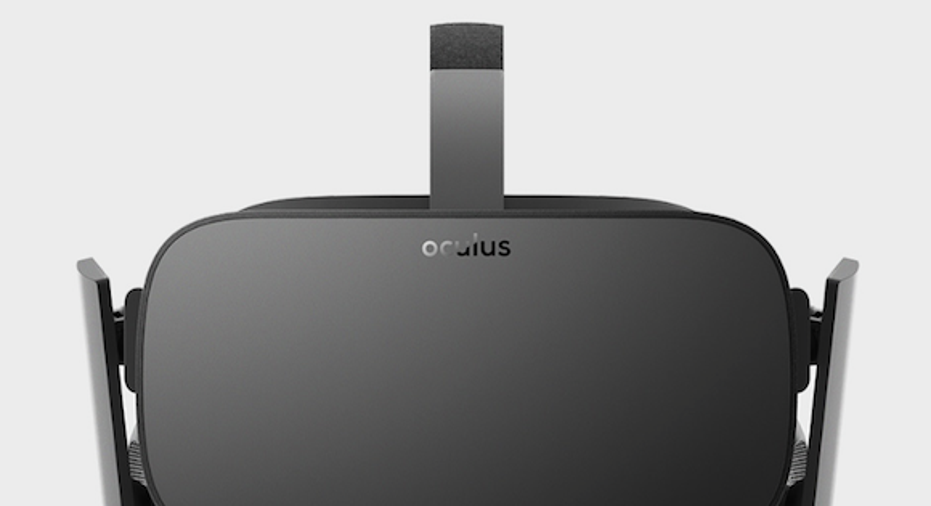7 Things You Probably Don't Know About Virtual Reality

Image source: Oculus.
Virtual reality sounds like science fiction to most of us, but the acclaimed futurist and inventorRay Kurzweil has likened it more to the extension of our telephones than a scary, new technology: "The telephone is virtual reality in that you can meet with someone as if you are together, at least for the auditory sense." All of the sudden, virtual reality (VR) appears a lot less mystical.
It's difficult to predict all of the use-cases for emerging technologies, and VR is no different. But the technology is quickly becoming a major focus for companies in the tech sector, and many believe we'll all be using VR some time in the near future.
So here are a few things to know about VR to help fill you in your understanding of the tech:
- Just 1% of PCs on the market this year will be able to handle high-end VR systems like Oculus Rift, according to NVIDIA . Of course, that's not stopping Samsung and Alphabet's Google from promoting mobile versions of their respective VRs, which use smartphones as the both the main display and processing power for virtual reality. But to get the true VR experience, NVIDIA says computers need to be 7 times more powerful than they are now. That's why Dell, Asus, and Alienware have all released VR-specific desktops.
- Most Americans don't want to spend a lot for virtual reality. About 60% of U.S. Internet users say they'll spend $400 or less for a virtual reality headset system and most only want to spend between $200 and $400, according to Touchstone Research.
- But the market is growing. Revenue from VR hardware and software sales are expected to spike from just $90 million in 2014 to $5.8 billion in 2018. Headset sales alone are expected to account for $3.9 billion two years from now, and there will be 171 million active VR users by that time, according to Statista.
- Most people know that Facebook forked over $2 billion to buy the now-famous VR company, Oculus. But the rest of Silicon Valley is getting in on the action, too. More than $765 million has been invested into virtual reality start-ups over the past five years, not including acquisitions.
- Virtual reality may be the ideal platform for gaming, but users are most interested in watching VR movies right now. About 39% of Internet users say they want to watch movies in virtual reality, followed by 38% who want to play VR games.
- It's not just younger people who are interested in VR. Sure, 79% of people aged 10 to 17 want to use the new tech, but so do 64% of baby boomers (those aged 51 to 69).
- Companies are already making virtual reality social. Oculus has a social app that allows up to four users to watch the same Vimeo or Twitch videos together in a virtual room. Users choose an avatar to represent them and can talk to each other about the video in real time, through their headset. And Facebook CEO Mark Zuckerberg says VR is a "social platform."
We may still be a little ways away from strapping on our VR headsets on a regular basis, but tech companies are making the tech one of their biggest focuses -- and it appears a lot of consumers are nearly ready for it.
The article 7 Things You Probably Don't Know About Virtual Reality originally appeared on Fool.com.
Suzanne Frey, an executive at Alphabet, is a member of The Motley Fool's board of directors. Chris Neiger has no position in any stocks mentioned. The Motley Fool owns shares of and recommends Alphabet (A shares), Alphabet (C shares), and Facebook. The Motley Fool recommends Nvidia. Try any of our Foolish newsletter services free for 30 days. We Fools may not all hold the same opinions, but we all believe that considering a diverse range of insights makes us better investors. The Motley Fool has a disclosure policy.
Copyright 1995 - 2016 The Motley Fool, LLC. All rights reserved. The Motley Fool has a disclosure policy.



















